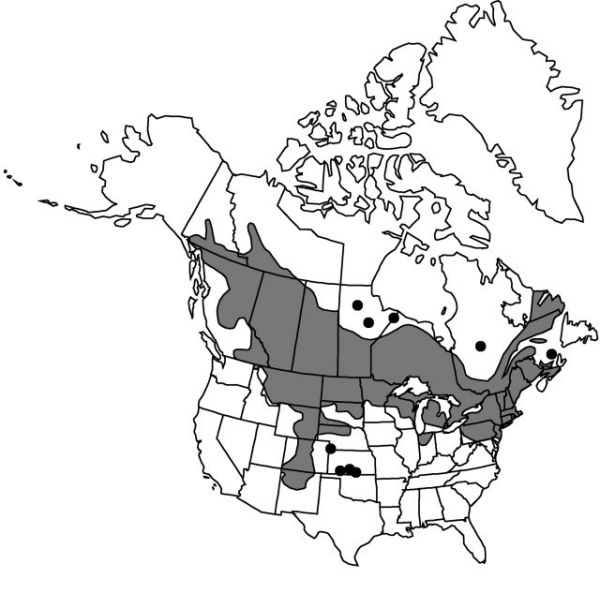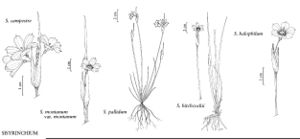Sisyrinchium montanum var. montanum
Plants pale green to olive when dry. Spathe: outer 36–76 mm, 14–46 mm longer than inner, connate basally 1–3.5 mm; inner with hyaline margins ending 0.9–4.3 mm proximal to green apex. 2n = 96.
Phenology: Flowering late spring–early summer.
Habitat: Moist meadows, stream banks, open woods
Elevation: 0–3100 m
Distribution

Alta., B.C., Man., N.B., Nfld. and Labr. (Labr.), N.W.T., N.S., Ont., P.E.I., Que., Sask., Yukon, Colo., Conn., Idaho, Ind., Kans., Maine, Mass., Mich., Minn., Mont., Nebr., N.H., N.J., N.Mex., N.Y., N.Dak., Pa., R.I., S.Dak., Vt., Wis., Wyo.
Discussion
Populations of var. montanum in Kansas and Nebraska have an unusually high proportion of branched-stem plants mixed with simple-stemmed ones—even within the same clump (Great Plains Flora Association 1986). Although branched stems are found occasionally elsewhere in the taxon’s range, the high incidence in this region is unusual and may be related to the distributional approach of S. angustifolium, with which it often has been confused.
Canadian populations of var. montanum tend to have narrower bracts and other less pronounced interspecific differences than do populations elsewhere. These populations can easily be confused with S. mucronatum, which consistently has some purple in the spathes and usually has a shorter outer spathe, and with S. septentrionale, which lacks emarginate outer tepals and has a very long and narrow outer spathe.
Selected References
None.
